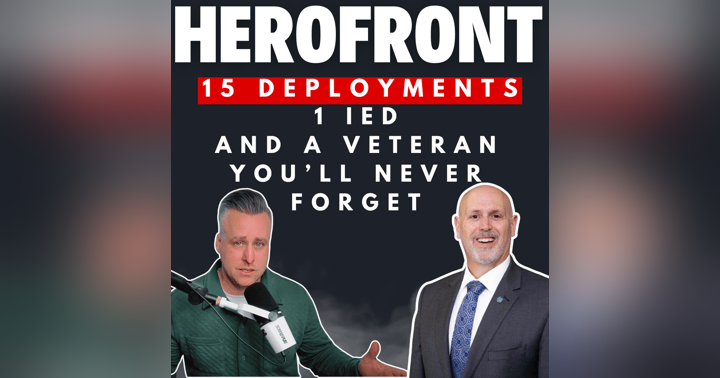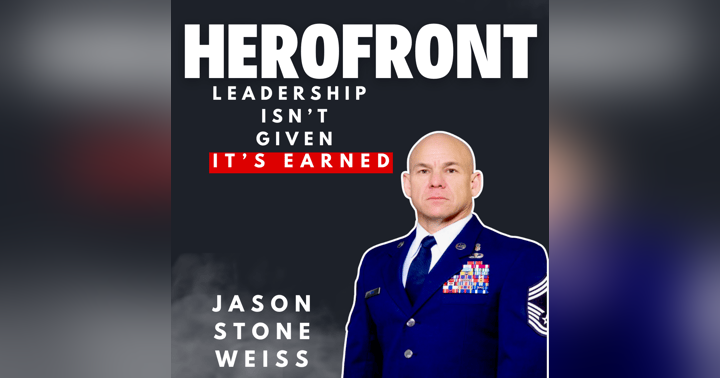The Military Paid for My Degree: Why It Took Me 20 Years and What I’d Do Differently

The Military Paid for My Degree: Why It Took Me 20 Years and What I’d Do Differently
Something incredible has happened—my degree finally arrived! At 40 years old, you might assume this is my master’s degree, but nope—it’s my bachelor’s. This milestone was sweet because I finally achieved a goal I set decades ago: earning my degree before retiring from the Air Force.
Even better? I didn’t spend a single penny on it, thanks to the military’s tuition assistance programs. Compare that to my wife’s degree, which we’re still paying off after more than a decade. (Hopefully, she won’t kill me for sharing that!) While I’m proud of this accomplishment, this isn’t about bragging—it’s about sharing why it took me 20 years and what I’d do differently.
A Fear of Taking The First Step
A Six-Year Delay in Getting Started
For my first six years in the military, I didn’t prioritize education. I had no immediate plans and no sense of urgency. It wasn’t until I reached the rank of staff sergeant that I began night school on base, taking two classes per semester. I had a severe lack of confidence stemming from issues I had in high school that prevented me from taking that first step.
What I’d Do Differently
Start early! Waiting until my sixth year meant I missed out on Pell Grant opportunities, which could have covered more costs and put extra cash in my pocket for expenses like books. Junior-ranking members often qualify for these benefits due to lower pay grades.
Pro Tip: If you’re just starting, your first step is to meet with your base’s education counselors to maximize your options. Choose a school that accepts the most credits from your military service, such as basic and tech training.
Taking Note from Those Around Me
When I finally did start, I remember looking around my classroom filled with older service members—Senior NCOs and even retirees. I thought, “Why are these people only now working on their degrees after 20+ years? What were they doing all this time?” I remember having no respect for them and thinking they must of made serious mistakes in their life. Little did I know, I’d become one of them.
Lesson Learned: Time flies, and responsibilities pile up quick. Avoid becoming the person who looks back wishing they’d started sooner.
Why It Took Me 20 Years
Life Gets in the Way
As a young airman, I thought I had no free time. Looking back, that belief was laughable. I had no time because of pro gaming commitments and a crippling alcohol dependency which had me staying up late and sleeping in. I had the time, I just didn't have the perspective to appreciate it or recognize it. Once I got married, started having kids, and climbed the ranks in the Air Force, my time became divided in ways I couldn’t have imagined. Eventually, I had no time left to myself. It was all for my family or the mission.
Challenge: Can you imagine a life where your work life was more comfortable than your home life? Sounds insane right? Eventually, you will find that being at work IS your "free time." Managing a family is the hardest thing you'll ever commit to. Balancing family, work, and school is no joke. For me, this meant sacrificing hobbies like gaming and drinking. It wasn’t easy, but the payoff was worth it in the long run.
The Reality of Military Responsibilities
The military isn’t just a job—it’s a commitment. By the time I became a senior NCO, I was no longer just participating in events or programs. I was leading them, organizing PME (Professional Military Education), and balancing work-life demands. Last minute deployments, TDYs, family emergencies, sleepless nights with newborns, and it’s no wonder progress was slow. You will have PLENTY of excuses to stop going to school.
The Importance of Perspective
Your perception of time changes as life gets busier. What felt overwhelming as a junior airman now seems easy in hindsight. The lesson? Listen to those who’ve gone before you—they can help you see the bigger picture. My mentors had their masters degree by 35 and their doctorate by 40. I have no one to blame but myself for this and I don't want you to do the same. Take this as your sign to get your ass in gear.
What I’d Do Differently: Recognize that free time is more abundant early in your career. Taking advantage of that window would have saved me years of stress later on.
Advice for Younger Service Members
Start Early and Stay Consistent
Momentum is everything. The earlier you begin working on your degree, the easier it is to finish. Waiting too long only makes it harder as life and responsibilities pile up.
Seek Guidance from Experienced Mentors
Talk to those who’ve been there. They’ll help you shift your perspective and understand how to navigate challenges.
FAQ Answer: Why is starting early in your career important?
Starting early allows you to maintain momentum and complete your degree before major responsibilities accumulate. It’s also when financial aid like Pell Grants is most accessible and will ensure you are eligible to be an officer (age can DQ you from this opportunity) Lastly, your military tuition
Don’t Let Fear Stop You
One of the biggest barriers for me was math. I avoided starting because I was intimidated by the four math classes required for my degree. It wasn’t until I worked with tutors that I finally succeeded. Trust me—you’re capable of more than you think.
Lesson Learned: Don’t let fear of failure hold you back. Resources like tutors and study groups can make all the difference.
What I Missed and What You Can Avoid
One of my biggest regrets is not completing my degree sooner, which made me ineligible to commission as an officer - like my father did during his service. That dream slipped away because I didn’t prioritize my education early enough and is by far my biggest regret. I was ineligible due to my age and this light a fire in me to get it done. I do not want to live my life with regrets because I held myself back. Fear, anxiety, alcohol dependency, distractions, and poor choice of friends put me behind. "You are the sum with who you surround yourself with"
Final Thought: If you aspire to become an officer or advance your career, finishing your degree quickly is essential.
Conclusion: Turn Lessons into Action
Earning my degree was one of the most rewarding achievements of my life. To all service members out there: don’t wait. Start now, stay consistent, and prioritize education early in your career. The sooner you finish, the more opportunities you’ll unlock—whether it’s commissioning, advancing your career, or simply achieving a personal goal.
"The best time to start was yesterday, the next best time to start is TODAY"





